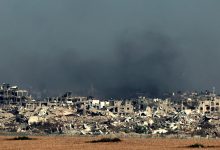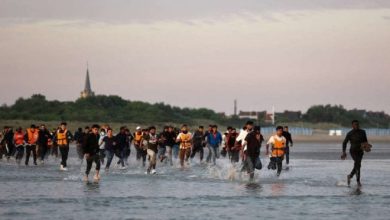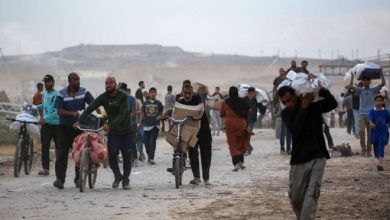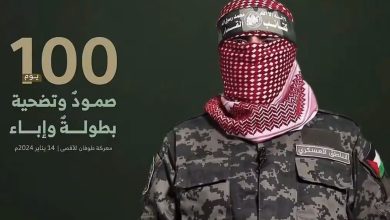Convoy of Steadfastness Enters Zawiya Amid Widespread Libyan Support
Gaza-bound Maghreb convoy welcomed in Zawiya after clearing border delays; civil society and medical teams mobilize across western Libya.

Watan-On Tuesday morning, the Convoy of Steadfastness to break the siege on Gaza entered the Libyan city of Zawiya, 30 kilometers west of Tripoli, where it was met with a large public reception.
The convoy had successfully crossed into Libyan territory via the Ras Ajdir border crossing, after hours of delays due to heightened security procedures. Libyan border guards allowed passage only after requesting that the convoy be split into three separate groups.
According to Mona Ben Nasser, a civil activist involved in the Zawiya welcome, the first group has already arrived in the city, with the other two expected to follow later today. She added that the Western Military Region of the Government of National Unity deployed security escorts to accompany the convoy through Libyan regions.
In her remarks to Al-Araby Al-Jadeed, Ben Nasser explained that the Libyan itinerary includes a stay in Zawiya hosted by local civil society organizations. The convoy will then head to Zliten, 150 kilometers east of Tripoli, where they will spend the night, passing through Martyrs’ Square in central Tripoli on the way.

Participating Libyan organizations include:
-
The National Organization for Social Justice and Development
-
Al-Quds Relief and Development Organization
-
“Jerusalem is Our Cause” Organization
-
Al-Tarahum and Tawasol Charitable Society
-
Zliten Campaign for Al-Aqsa Support
-
Al-Rahma Charity
-
Wafaa Relief and Development Foundation
-
Nafir Movement
-
“Boycott and Resist” Campaign
-
Al-Rakhaa Charitable Foundation
These organizations are mainly based in western Libya. Meanwhile, the Benghazi Civil Society Commission has not yet announced its list of participating groups. Ben Nasser noted that the convoy’s route is still undergoing changes, and its stops in eastern Libya remain unclear.
The convoy, which departed from Tunis on Monday, consists of 15 buses and 150 vehicles, taking a route that includes western Libya, Sirte, Benghazi, and ultimately the Saloum border crossing with Egypt, before entering Gaza.

The mission includes 1,500 Tunisian activists and 200 Algerians, determined to break the Israeli siege and deliver humanitarian aid. From the early hours of Monday morning, hundreds gathered in central Tunis to send off the convoy, which included buses draped in Palestinian and Tunisian flags, escorted by vehicles chanting slogans like “We are here for you, Al-Aqsa!”
More than four weeks ago, the Coordination for Joint Action for Palestine began organizing the convoy’s logistics, including registering activists from various sectors—civil society, political parties, labor unions, and medical professionals.
Dr. Wajih Dhakkar, president of the Tunisian Young Doctors Organization, said dozens of doctors joined the convoy and assisted in logistics, medical supply collection, and preparing an ambulance to be delivered into Gaza.






